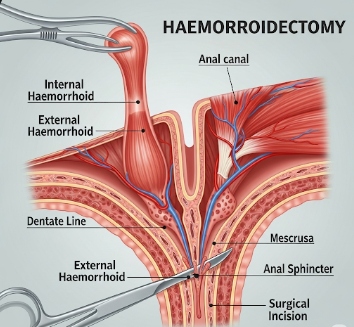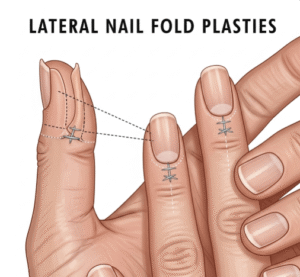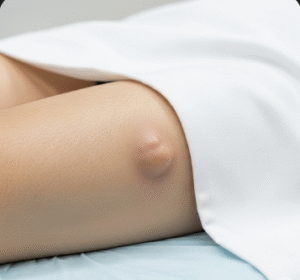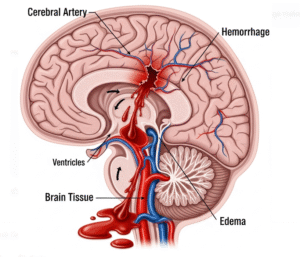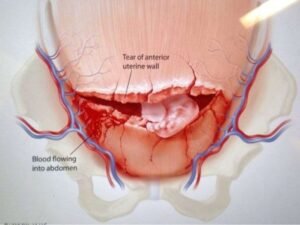Overview
Haemorrhoidectomy is a surgical procedure to remove severe or persistent haemorrhoids, which are swollen veins in the rectum or anus that can cause pain, bleeding, itching, or discomfort. This surgery is typically recommended for patients who have large, prolapsed, or thrombosed haemorrhoids that do not respond to non-surgical treatments such as creams, dietary changes, or minimally invasive procedures.
South Korea is recognized for its advanced colorectal surgery expertise, modern surgical equipment, and post-operative care protocols. Many international patients choose Korea for safe, effective haemorrhoidectomy with minimal complications and faster recovery.
What is Haemorrhoidectomy?
Haemorrhoidectomy involves surgical removal of haemorrhoidal tissue under anesthesia. The procedure can be performed using several techniques:
- Open Haemorrhoidectomy (Milligan-Morgan) → Traditional method leaving wounds open to heal naturally.
- Closed Haemorrhoidectomy (Ferguson) → Wounds are sutured closed for faster healing.
- Stapled Haemorrhoidectomy → Less invasive, reduces pain, ideal for prolapsed haemorrhoids.
- Laser or advanced minimally invasive techniques → Available in select Korean hospitals for precision and quicker recovery.
The main goal is to eliminate symptoms, prevent recurrence, and restore normal bowel function.
What are the Benefits?
- Effective relief from pain, bleeding, and prolapse
- Long-term solution for severe or recurring haemorrhoids
- Reduced recurrence compared to non-surgical treatments
- Improved quality of life → relief from discomfort and embarrassment
- Advanced techniques in Korea → minimize pain and recovery time
- Safe anesthesia and post-operative care under experienced surgeons
Procedure Details
1) How should I prepare for Haemorrhoidectomy?
- Medical evaluation → Blood tests, ECG, and colonoscopy if required
- Medication adjustments → Stop blood thinners or anticoagulants as advised
- Bowel preparation → Laxatives or enemas may be prescribed to clear the rectum
- Fasting → Typically 6–8 hours before surgery
- Pre-op consultation → Discuss procedure type, expected pain, recovery plan, and risks
2) What happens during the procedure Haemorrhoidectomy?
- Anesthesia → Usually general or regional (spinal) anesthesia
- Surgical steps →
- Identification of haemorrhoids causing symptoms
- Excision or stapling of haemorrhoidal tissue
- Suturing or leaving the wound open based on the technique
- Duration → Usually 30–90 minutes, depending on the number and severity of haemorrhoids
- Pain management → Local anesthetic injections may be used to reduce post-op discomfort
3) What happens after a Haemorrhoidectomy?
- Recovery room observation until anesthesia wears off
- Hospital stay → Usually 1–2 days for standard procedures; same-day discharge possible for minimally invasive techniques
- Pain management → Oral or IV analgesics
- Diet → High-fiber diet and adequate hydration to prevent constipation
- Activity restrictions → Avoid heavy lifting and prolonged sitting for 2–4 weeks
- Follow-up visits → Monitor healing, remove sutures if required, and check for complications
Risks / Benefits
Risks
- ➤ Pain and discomfort after surgery
- ➤ Bleeding from surgical site
- ➤ Infection at incision site
- ➤ Urinary retention (temporary difficulty urinating)
- ➤ Anal stricture or narrowing (rare)
- ➤ Recurrence of haemorrhoids if lifestyle changes are not maintained
Benefits
- ➤ Permanent relief from severe or recurring haemorrhoids
- ➤ Reduction in bleeding, pain, and itching
- ➤ Improved bowel habits and overall comfort
- ➤ Minimally invasive techniques in Korea reduce post-operative pain
- ➤ High success rates with modern surgical approaches
Recovery and Outlook
- Short-term recovery → Mild to moderate pain and discomfort for 1–2 weeks
- Bowel movements → May be uncomfortable initially; stool softeners and fiber recommended
- Full recovery → Usually within 4–6 weeks depending on procedure type and patient health
- Lifestyle adjustments → High-fiber diet, hydration, and regular exercise reduce recurrence risk
- Long-term outlook → Most patients experience permanent relief and improved quality of life
Korean hospitals provide personalized post-op care including pain management, dietary guidance, and follow-up consultations for optimal healing.
When To Call the Doctor
Seek medical attention if any of the following occur:
- ⚠️ Heavy or persistent bleeding
- ⚠️ Severe or worsening pain not relieved by medication
- ⚠️ Fever, chills, or signs of infection
- ⚠️ Difficulty urinating or constipation that persists
- ⚠️ Unusual discharge or wound separation
- ⚠️ Signs of recurrence or prolapse
Best Korea Option / Process
South Korea is a preferred destination for haemorrhoid surgery due to:
- Experienced colorectal surgeons trained in advanced techniques
- Minimally invasive stapled or laser options for reduced pain and faster recovery
- State-of-the-art hospitals with modern operating rooms and monitoring equipment
- Affordable yet high-quality care compared to Western countries
- Comprehensive aftercare including dietary advice, follow-ups, and rehabilitation
Leading Hospitals for Haemorrhoidectomy in Korea:
- Asan Medical Center, Seoul – Expert colorectal surgery department
- Samsung Medical Center – Minimally invasive haemorrhoid procedures
- Seoul National University Hospital (SNUH) – Advanced post-op care and rehabilitation
- Yonsei Severance Hospital – Specializes in complex haemorrhoid cases and stapled haemorrhoidectomy
👉 For patients suffering from severe, persistent, or prolapsed haemorrhoids, Haemorrhoidectomy in Korea offers safe, effective, and long-lasting solutions with world-class expertise.

